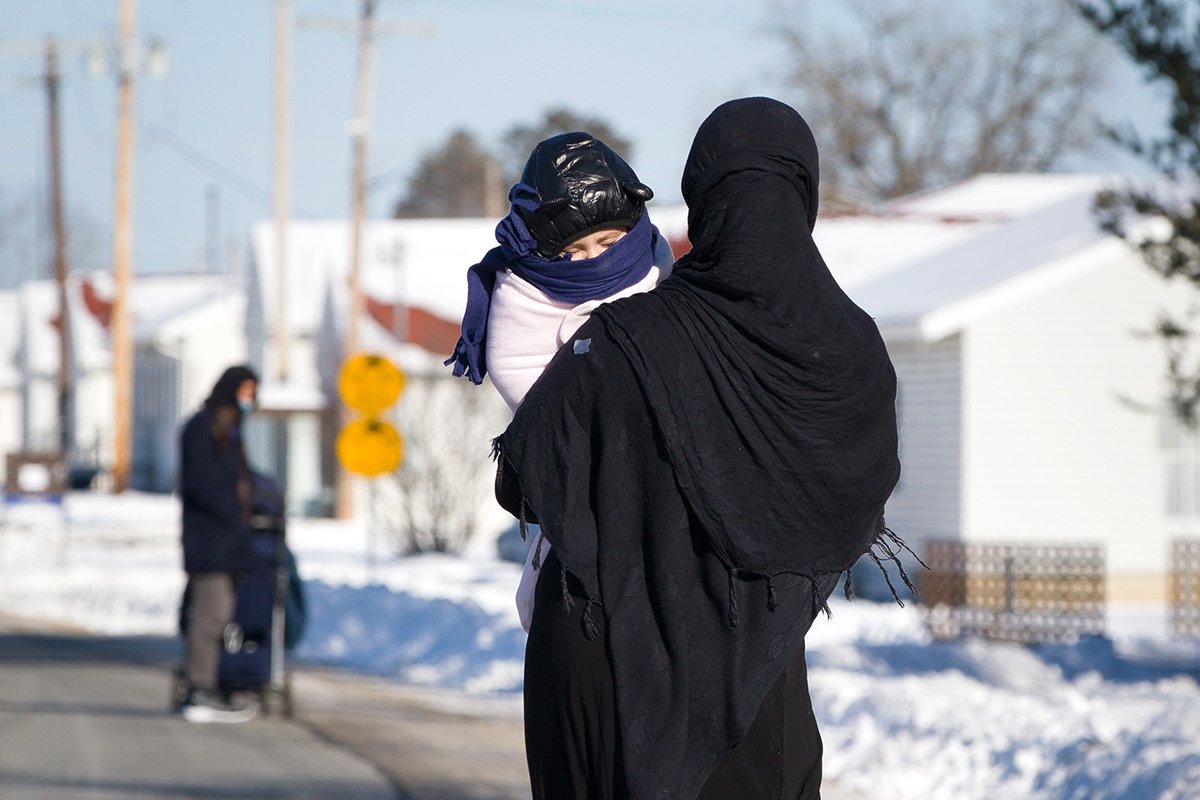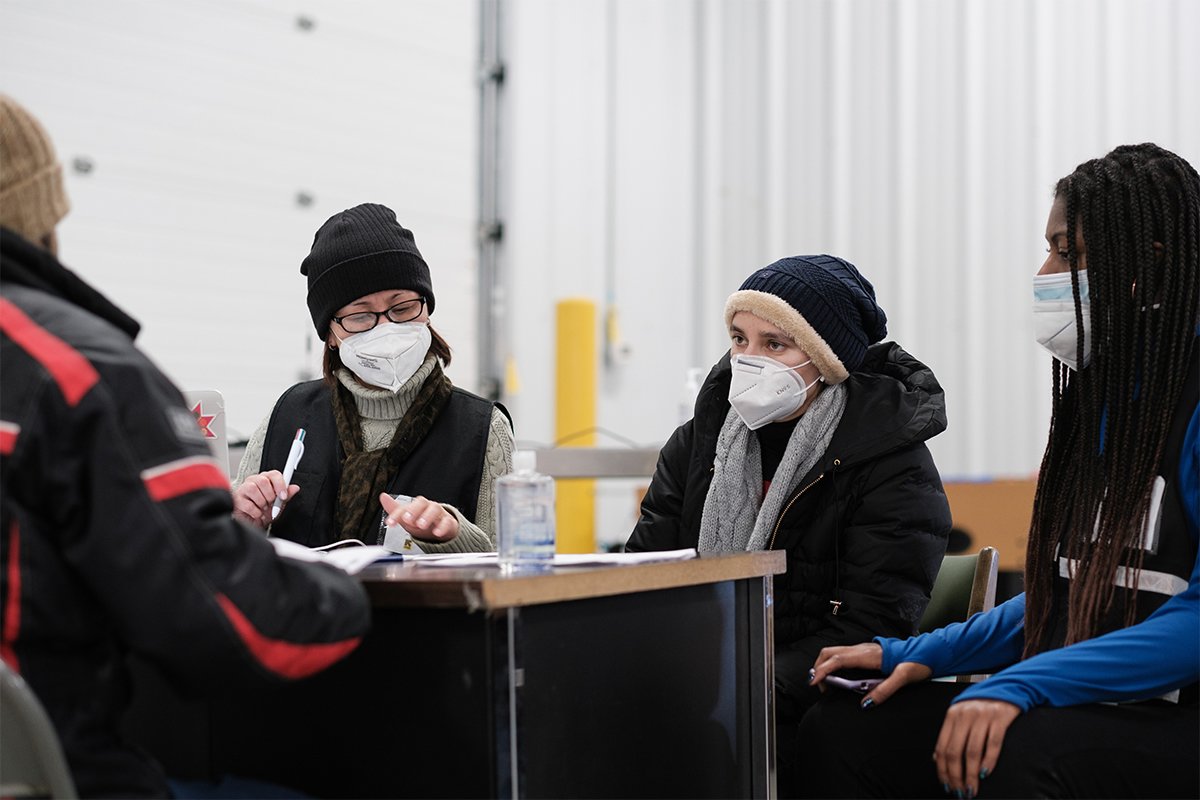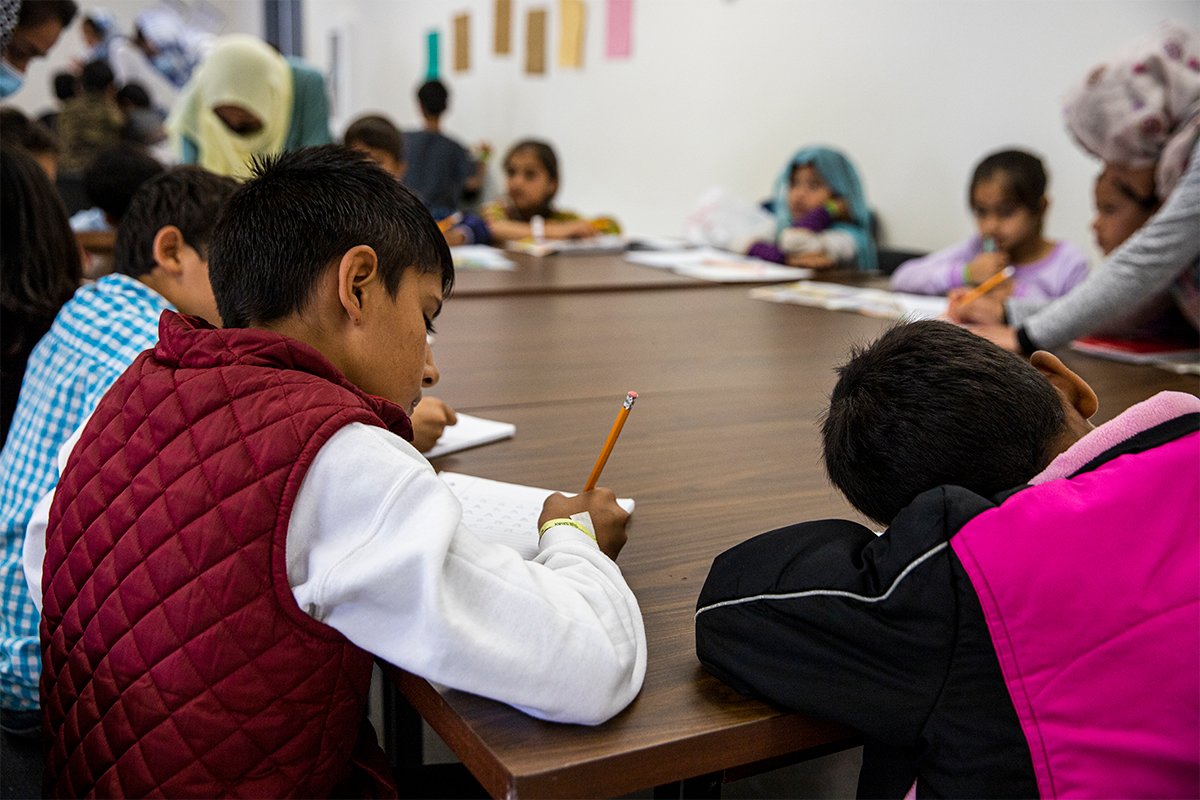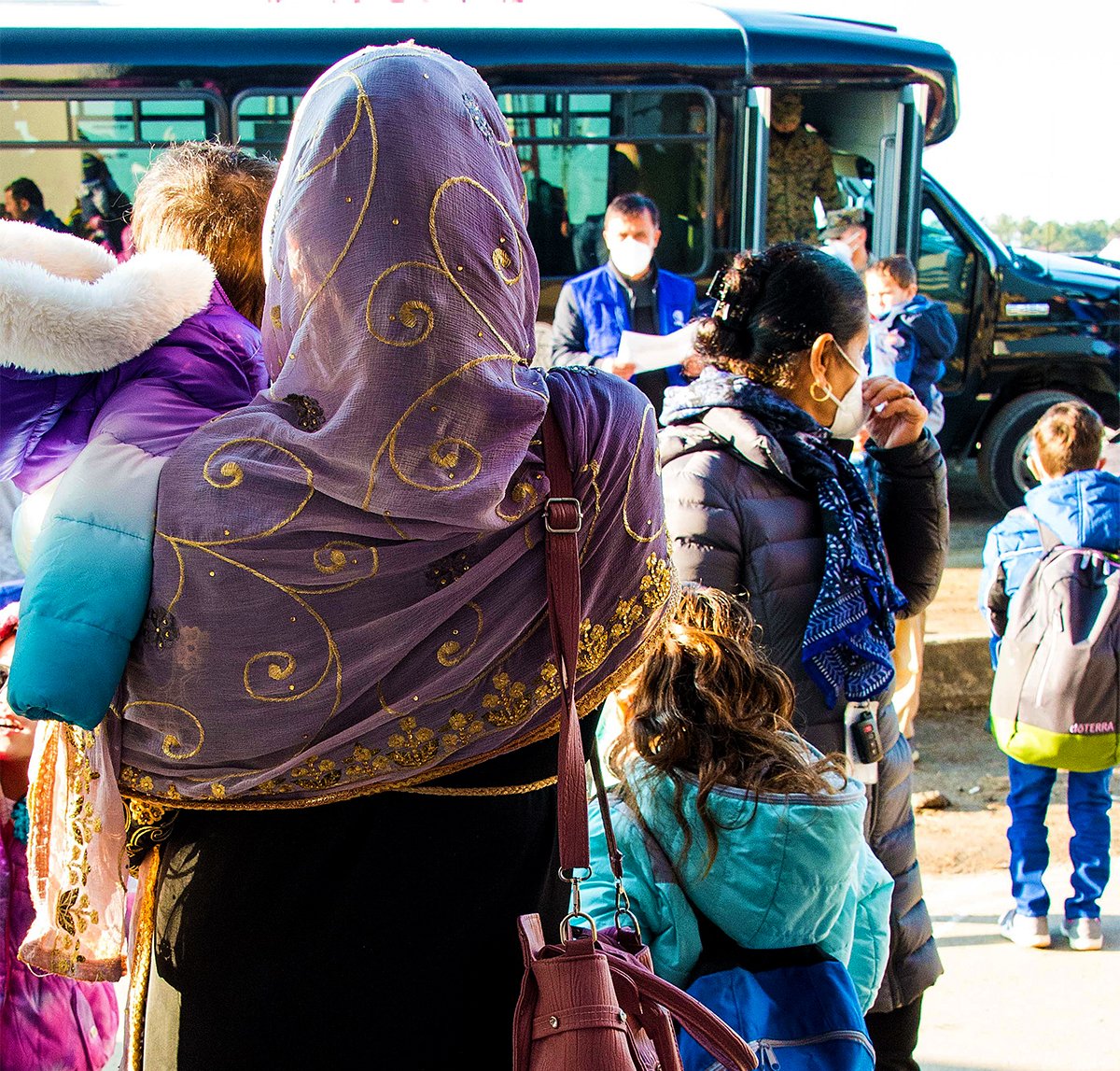How the Afghan Resettlement Process is Working for Thousands of Families

An Afghan family and their children walk to the nearest bus stop on Fort McCoy, Wisconsin, Jan. 25, 2022. US Army photo by Sgt. Robert P Wormley III.
As of February 2022, some 65,000 Afghans evacuated during the American withdrawal from Afghanistan have settled in U.S. communities. Several hundred more remain on military bases in the U.S., while nearly 2,800 are still waiting on U.S. bases abroad.
The Biden administration, which aims to have all Afghan evacuees off domestic military bases by the end of February 2022, has started the final push to place refugees with host communities.
Operation Allies Welcome, the official name for the American government’s Afghan assistance program, is the most significant U.S. resettlement effort since 1975, when more than 140,000 people from Southeast Asia were resettled following the U.S. military withdrawal from Vietnam.
But the media spotlight has moved on, and most Americans have limited understanding of what it means for Afghans to transition to life in the United States. Our work as educators and researchers is focused on migration, human rights and social work. We have studied American volunteers’ role in helping refugees and see public support as crucial for Afghans’ continued adjustment to the U.S.
System under strain
Evacuees brought to U.S. military bases go through rigorous security vetting and health checks. Once these are complete, evacuees await assignment to private groups that will assist in securing housing, work opportunities, education and health care.

Nine domestic agencies partner with the U.S. government to resettle refugees. Six of them are faith-based, reflecting a long history of religious groups’ involvement in immigration policies. These include Jewish, Catholic and Protestant groups, but all offer help regardless of refugees’ religion.
These resettlement agencies are given a one-time payment of US$2,275 in federal funding for each refugee they support. Of this assistance, $1,225 may be used for housing and other basic necessities. The remainder of the funds covers administrative costs.
The Trump administration severely limited refugee resettlement, dropping admissions to a record low of 15,000 in 2021, compared with an average of 95,000 per year under previous administrations. Our current research examines the extraordinary strain this decrease put on the resettlement system.
Innovations in aid
To evacuate Afghans quickly, the State Department launched an initiative in September 2021 called the Afghan Placement and Assistance Program, which allows Afghans into the U.S. as parolees after security checks. Humanitarian parole can be granted for “urgent humanitarian reasons” or “significant public benefit.”
Those paroled between July 31, 2021, and Sept. 30, 2022, are eligible for refugee assistance and other public benefits until March 31, 2023, or the end of their parole term. Afghan parolees who leave military bases before being assigned to a resettlement organization or placed with a community sponsorship group have 90 days to request aid through the program.
Yet the capacity of these organizations is not adequate to meet the large-scale rapid resettlement needs, as agencies struggle to build back from the previous administration’s cuts. The housing shortage for rapid resettlement is so profound that resettlement agencies and some states have partnered with Airbnb to provide emergency housing, following the company’s commitment in August 2021 to support 20,000 Afghan evacuees worldwide.

For this reason, the Biden administration created a parallel program to allow community organizations or groups of five or more individual volunteers to directly sponsor Afghans. These sponsors, many of whom are part of a new initiative called Sponsor Circles, must raise $2,275 on their own for each evacuee and commit to providing at least 90 days’ support, such as helping them secure housing and employment and building connections in their new community.
As of late January 2022 approximately 30 Sponsor Circles had reportedly received approvals and another 100 were being certified.
Here – for now
While many Americans think of the arriving Afghans as “refugees,” most of these newcomers have a more tenuous legal status.
The Department of Homeland Security reports that 70,192 have entered the country under humanitarian parole, which allows residence in the U.S. for two years without a visa.
Nearly 40,000 Afghan evacuees who entered under humanitarian parole have applied for refugee status or for special immigrant visas, which are for people who worked with the U.S. government or armed forces in Afghanistan. Another 36,433 Afghans have no clear pathway to permanent legal status, because of many factors such as not having worked at least one year for the U.S. government.
U.S. agencies brought in Afghans under humanitarian parole, rather than standard refugee procedures, because of the urgency of the evacuation. But the consequences may be profound.

Some parolees had to wait weeks or months for the government or social service organizations to file paperwork granting them the right to work. Another challenge for parolees is securing family members’ admission to the U.S., which requires a high level of proof of threat to that particular individual.
Many Afghan parolees should eventually qualify for asylum, but applying is a lengthy and complex process that generally requires significant legal assistance. More than 400,000 asylum cases are pending in the U.S. asylum system.
Refugee resettlement organizations and voluntary groups that could normally help with filing asylum claims are already stretched thin. Evacuees’ advocates have called for approval of the Afghan Adjustment Act, which would allow Afghans to apply for lawful permanent resident status without waiting for the asylum system to rule on their cases or processing of special immigrant visa applications.
Governors, businesses, celebrities, universities, military members, veterans and individuals across the U.S. have stepped in to support recent Afghan evacuees – many in locales with no history of resettling refugees. The responsibilities of resettlement, however, extend beyond helping evacuees in their first few weeks, to helping them secure a stable future.
This article is republished from The Conversation under a Creative Commons license. Read the original article.
Read Next:

Coffee or Die is Black Rifle Coffee Company’s online lifestyle magazine. Launched in June 2018, the magazine covers a variety of topics that generally focus on the people, places, or things that are interesting, entertaining, or informative to America’s coffee drinkers — often going to dangerous or austere locations to report those stories.
BRCC and Bad Moon Print Press team up for an exclusive, limited-edition T-shirt design!
BRCC partners with Team Room Design for an exclusive T-shirt release!
Thirty Seconds Out has partnered with BRCC for an exclusive shirt design invoking the God of Winter.
Lucas O'Hara of Grizzly Forge has teamed up with BRCC for a badass, exclusive Shirt Club T-shirt design featuring his most popular knife and tiomahawk.
Coffee or Die sits down with one of the graphic designers behind Black Rifle Coffee's signature look and vibe.
Biden will award the Medal of Honor to a Vietnam War Army helicopter pilot who risked his life to save a reconnaissance team from almost certain death.
Ever wonder how much Jack Mandaville would f*ck sh*t up if he went back in time? The American Revolution didn't even see him coming.
A nearly 200-year-old West Point time capsule that at first appeared to yield little more than dust contains hidden treasure, the US Military Academy said.












